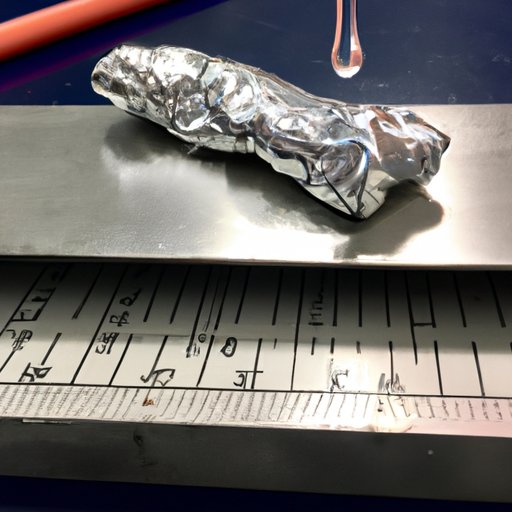This article provides a comprehensive analysis of the properties, environmental impact, historical significance, market trends, and case studies related to selecting between tin and aluminum materials, to help manufacturers and consumers make informed decisions.
Category: Aluminum Industry
Welcome to the Aluminum Industry category of our blog. Here, we provide in-depth knowledge about the Aluminum Industry, covering various aspects such as production, manufacturing, applications, and the latest trends and developments. Our articles will be a valuable resource for anyone looking to learn more about the Aluminum Industry and stay up to date with the latest industry news and insights.
Exploring the Benefits and Uses of Thin Aluminum Sheets for Industrial Applications
Thin Aluminum Sheets have found their application in various industrial sectors due to its highly beneficial and flexible nature. This article explores the benefits and uses of thin aluminum sheets, how to choose the right thickness, their advantages and disadvantages, and the top 5 applications in the automotive industry.
The Ultimate Guide to Spray Painting Aluminum
Learn how to spray paint aluminum to achieve a professional-looking finish. From different spray paint options to prepping aluminum surfaces, read this article for tips and tricks to ensure optimal results.
The Benefits of Using Aluminum for Thermal Conductivity
Aluminum is an essential material for solving the problem of efficient heat transfer in numerous industries and applications. Its thermal conductivity, durability, and cost-effectiveness make it a popular choice for manufacturers around the world. This article explores the science behind thermal conductivity, the benefits of using aluminum, and its diverse applications, including in the HVAC industry.
Exploring Thermal Expansion Coefficient for Aluminum: A Guide for Industrial Applications
This article explores thermal expansion coefficient for aluminum, covering its definition, measurement, and importance in industrial applications such as aerospace and automotive. It also compares aluminum’s thermal expansion coefficient with other common metals and discusses how to choose the right aluminum grade for specific applications based on its thermal expansion coefficient.
Exploring the Tensile Strength of Aluminum: Properties, Science and Applications
Aluminum is one of the most commonly used metals in various industries, thanks to its unique properties, including high tensile strength, low density, and resistance to corrosion. In this article, we explore the tensile strength of aluminum, the science behind it, and discover why it has become a top choice in various high-strength applications.
The Science Behind Aluminum Melting Temperature: Understanding the Properties and Best Practices for Metalworking
Understanding the melting temperature of Aluminum is crucial for the metalworking process. Learn the science behind Aluminum melting temperature and its impact on heat treatment, mechanical properties. Follow these tips to improve your Aluminum metalworking techniques.
Everything You Need to Know About Stock Aluminum: The Benefits, Uses, and Considerations
Discover the benefits, uses, and considerations of stock aluminum in manufacturing. Learn about different grades, machining techniques, and customization options to help you choose the right option for your project. Explore the role of stock aluminum in various industries and consider emerging trends and future predictions for the availability and use of this versatile material.
Understanding the Science of Temperature and its Impact on Aluminum Melting
Understanding the role of temperature in aluminum melting is crucial for metalworkers looking to achieve optimal results. This article explores the different factors impacting aluminum melting, the physics behind the process, and different methods to achieve optimal temperature control. Safety guidelines and real-world examples are provided to help metalworkers produce high-quality aluminum products that meet the specific requirements of their projects.
Square Tube Aluminum: Properties, Applications, Advantages, and Grades
Learn all about square tube aluminum, its benefits, properties, applications, and grades. This article explores the advantages and disadvantages of using square tube aluminum, different types of applications and industries that rely on it, as well as best practices and tips for designing and working with it.










